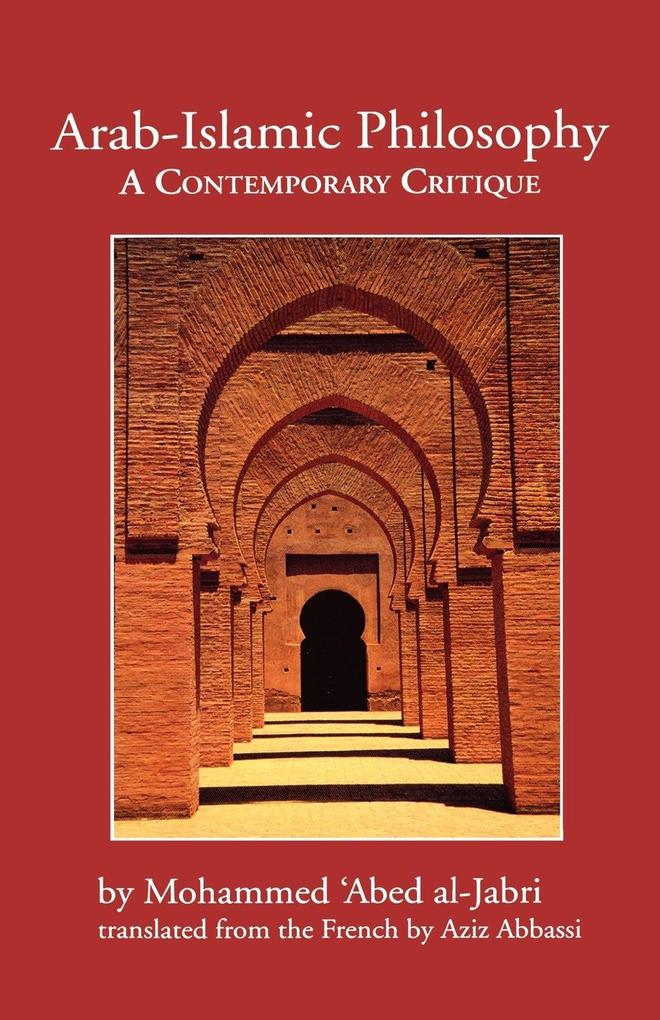
Zustellung: Di, 17.06. - Fr, 20.06.
Versand in 6 Tagen
VersandkostenfreiBestellen & in Filiale abholen:
The distinguished Moroccan philosopher Mohammed Abed al-Jabri, in this summary of his own work, examines the status of Arab thought in the late twentieth century. Al-Jabri rejects what he calls the current polarization of Arab thought between an imported modernism that disregards Arab tradition and a fundamentalism that would reconstruct the present in the image of an idealized past.
Both past and present intellectual currents are examined. Al-Jabri first questions the current philosophical positions of the liberals, the Marxists, and the fundamentalists. Then he turns to history, exploring Arab philosophy in the tenth and twelfth centuries, a time of political and ideological struggle. In the writings of Ibn Hazm and Averroë s, he identifies the beginnings of Arab rationalism, a rationalism he traces through the innovative fourteenth-century work of Ibn Khaldun.
Al-Jabri offers both Western readers and his own compatriots a radical new approach to Arab thought, one that finds in the past the roots of an open, critical rationalism which he sees as emerging in the Arab world today.
Both past and present intellectual currents are examined. Al-Jabri first questions the current philosophical positions of the liberals, the Marxists, and the fundamentalists. Then he turns to history, exploring Arab philosophy in the tenth and twelfth centuries, a time of political and ideological struggle. In the writings of Ibn Hazm and Averroë s, he identifies the beginnings of Arab rationalism, a rationalism he traces through the innovative fourteenth-century work of Ibn Khaldun.
Al-Jabri offers both Western readers and his own compatriots a radical new approach to Arab thought, one that finds in the past the roots of an open, critical rationalism which he sees as emerging in the Arab world today.
Inhaltsverzeichnis
- Introduction by Walid Hamarneh
- Author's Introduction
- Part One: A Different Reading of the Tradition Discourse
- Chapter I: The Present Shortcomings
- Chapter II: For a Scientific Critique of Arab Reason
- Part Two: Philosophical Thinking and Ideology
- Chapter III: Historical Dynamics of the Arab-Islamic Philosophy
- Chapter IV: The Rise and Fall of Reason
- Chapter V: The Andalusian Resurgence
- Conclusion: The Future Can Only Be Averroist
Produktdetails
Erscheinungsdatum
01. Juli 1999
Sprache
englisch
Seitenanzahl
156
Autor/Autorin
Mohammed 'Abed al-Jabri
Verlag/Hersteller
Produktart
kartoniert
Gewicht
206 g
Größe (L/B/H)
216/140/9 mm
ISBN
9780292704800
Entdecken Sie mehr
Bewertungen
0 Bewertungen
Es wurden noch keine Bewertungen abgegeben. Schreiben Sie die erste Bewertung zu "Arab-Islamic Philosophy" und helfen Sie damit anderen bei der Kaufentscheidung.









